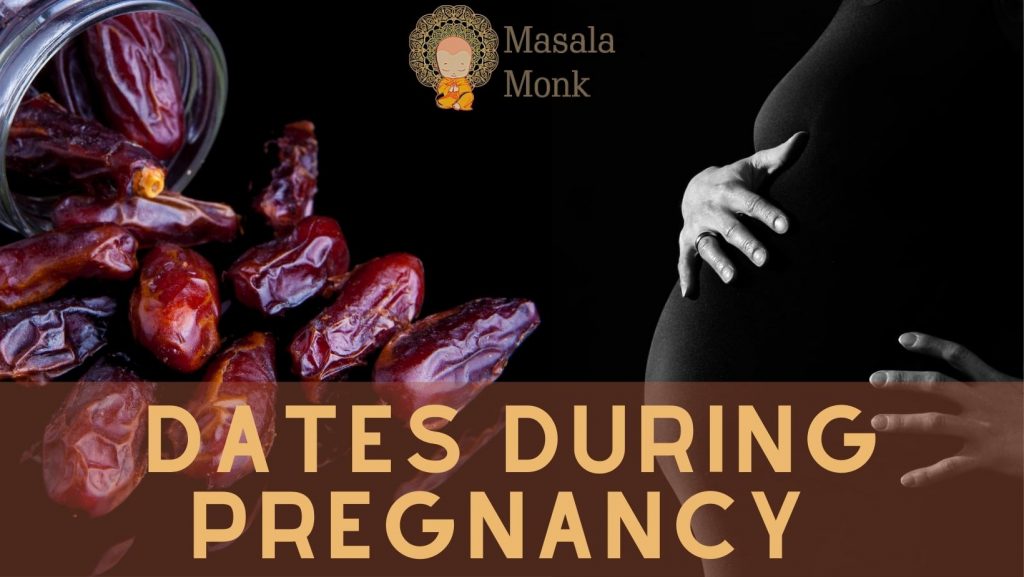
Introduction:
Picture this: amidst the plethora of advice and dietary dos and don’ts that come with pregnancy, there lies a sweet, wrinkled, and often overlooked hero – the humble date. This small yet mighty fruit, steeped in history and nourishing qualities, has been a whispered secret among generations of expectant mothers. But what makes dates such a coveted choice during pregnancy? Is there more to this sweet delight than meets the eye?
Welcome to our deep dive into the world of dates during pregnancy. In this comprehensive guide, we’ll peel back the layers of myths and truths, unlocking the power of dates in nurturing both the mother and the developing life within. From their nutritional profile that reads like a prenatal supplement to their fascinating role in easing labor, dates are not just a treat for the palate but a boon for pregnancy health.
As we embark on this journey, expect to be surprised, informed, and maybe even a little inspired to look at this fruit in a whole new light. Whether you’re an expectant mother, a supportive partner, or just a curious reader, prepare to discover the sweet intersection of nature’s bounty and maternal well-being.
So, grab your favorite snack (perhaps a date or two) and settle in as we explore the delicious and nutritious world of eating dates during pregnancy.
The Nutritional Symphony of Dates: A Powerhouse for Pregnancy
In the realm of pregnancy nutrition, dates stand out not just for their sweetness, but for the symphony of nutrients they pack. Let’s break down this nutritional powerhouse:
- Fiber: The Digestive Champion
- Dates are a rich source of dietary fiber. Just a handful can significantly contribute to your daily fiber needs, easing pregnancy-related constipation and nurturing gut health. This natural laxative effect is gentle yet effective, making dates a go-to remedy for one of pregnancy’s more uncomfortable side effects.
- Natural Sugars for Sustained Energy
- Unlike processed sugars that lead to quick spikes and crashes in energy levels, the natural fructose in dates offers a more sustained energy boost. This makes them a perfect snack to combat fatigue, a common pregnancy ailment.
- Vital Vitamins and Minerals
- Dates come loaded with essential vitamins and minerals. They’re rich in potassium, which is key in maintaining fluid balance and regulating blood pressure. Magnesium in dates helps alleviate muscle cramps, a frequent complaint during pregnancy. Moreover, the folate in dates is critical for preventing neural tube defects in the developing fetus.
- Iron-Rich, Anemia-Busting Delight
- Iron deficiency is a common concern in pregnancy, leading to anemia. Dates, with their iron content, can be a natural ally in maintaining healthy hemoglobin levels, ensuring both mother and baby receive adequate oxygen and nutrients.
- Vitamin K for Newborn Health
- An often-overlooked nutrient, Vitamin K is vital for blood clotting and bone development. Regular consumption of dates can enrich a mother’s milk with this vital nutrient, supporting the newborn’s health.
A Sweet, Yet Balanced, Indulgence
Despite their sweetness, dates have a relatively low glycemic index, making them a safe choice even for mothers managing gestational diabetes. However, moderation is key. The high sugar content, while natural, still warrants mindful consumption, especially in cases of blood sugar sensitivities.
In the next section, we’ll explore how these nutritional benefits translate into tangible health advantages during pregnancy, particularly in the context of labor and delivery.
Harnessing the Power of Dates for Maternal Health and Easier Labor
Diving deeper into the health benefits of dates during pregnancy, it becomes evident why this fruit is revered by expecting mothers and health professionals alike. Let’s examine how dates can play a pivotal role in a healthy pregnancy and potentially ease the journey of childbirth:
- Easing Labor and Delivery:
- A fascinating aspect of date consumption during pregnancy is its potential to ease labor. Research suggests that dates have an oxytocin-like effect, enhancing the sensitivity of the uterus and stimulating contractions. This natural induction method could lead to a more favorable labor experience, with some studies indicating that women who regularly consumed dates had higher cervical dilation upon admission for labor, experienced shorter first stages of labor, and were less likely to require medical induction.
- The high natural sugar content in dates is believed to provide necessary energy during labor, contributing to stamina and endurance when it matters most.
- Reducing the Risk of Postpartum Hemorrhage:
- Besides facilitating labor, the consumption of dates may also reduce the risk of postpartum hemorrhage, a critical concern in childbirth. The nutritional composition of dates, including essential fatty acids and certain compounds, aids in contracting the uterine muscles efficiently, which is vital for reducing blood loss after delivery.
- Aiding in Common Pregnancy Challenges:
- Beyond labor, dates offer multiple benefits throughout the pregnancy journey. Their high fiber content addresses constipation, a common pregnancy complaint, while the potassium and magnesium content helps in maintaining a healthy blood pressure level and reducing muscle cramps.
- The natural sugars in dates provide a healthier alternative to processed sweets, helping in managing cravings without the adverse effects of refined sugar. For women experiencing nausea or morning sickness, the vitamin B6 in dates can be particularly soothing.
- Supporting Fetal Development:
- Nutrients in dates like folate play a crucial role in fetal brain and spinal cord development, reducing the risk of birth defects. Additionally, the iron content supports the development of the baby’s circulatory system and aids in the prevention of maternal anemia.
When and How Much: The Date Consumption Guide for Pregnancy
While the benefits are abundant, the timing and quantity of date consumption can optimize its effects:
- Starting Point: Incorporating dates early in the pregnancy is beneficial, but the last trimester, particularly around week 36, is crucial for leveraging their labor-easing properties.
- Recommended Intake: Consistency is key. Studies suggest consuming around six smaller deglet noor dates or three larger medjool dates per day leading up to the due date.
- Moderation Matters: While dates are nutritious, their high sugar content requires moderation, especially for those with gestational diabetes or blood sugar concerns.
Navigating the Sweet Path: Considerations and Risks of Eating Dates During Pregnancy
While the benefits of dates in pregnancy are compelling, it’s crucial to navigate their consumption with awareness of potential risks and considerations:
- Managing Sugar Intake:
- Despite the natural source of their sugar, dates are high in carbohydrates. This can be a concern for pregnant women with or at risk of gestational diabetes. Monitoring portion sizes and maintaining a balanced diet is essential to avoid spiking blood sugar levels.
- Women diagnosed with gestational diabetes should consult their healthcare provider to determine an appropriate amount of date consumption.
- Digestive Sensitivities:
- The high fiber content in dates, while generally beneficial, can lead to digestive discomfort if overconsumed. This includes symptoms like diarrhea, bloating, or cramping. Balancing date intake with other dietary fiber sources and adequate hydration can mitigate these effects.
- Allergic Reactions and Sensitivities:
- Although rare, some individuals may have allergies or sensitivities to dates. Watch for any adverse reactions, especially if consuming dates in larger quantities than usual.
- Dental Health Considerations:
- The sticky texture of dates can adhere to teeth, potentially contributing to dental issues if oral hygiene is not adequately maintained. Regular brushing and flossing are important, especially given the increased susceptibility to dental problems during pregnancy.
- Quality and Preparation:
- Opt for organic and unsulfured dates to avoid exposure to pesticides and sulfites, which can trigger asthma and allergies. Ensure the dates are well-washed to remove any surface contaminants.
Incorporating Dates into Your Pregnancy Diet: Tips and Tricks
Now that we understand the benefits and considerations, how can we incorporate dates into a pregnancy diet effectively and deliciously?
- Portion Control: Start with a smaller amount, such as two or three dates daily, and adjust based on your body’s response and dietary needs.
- Diverse Usage: Dates are versatile. Blend them into smoothies, chop them into oatmeal, or use them as a natural sweetener in baking.
- Balanced Pairing: Pair dates with proteins or healthy fats (like nuts or cheese) to balance the sugar absorption and extend the feeling of fullness.
Conclusion: A Sweet Addition to Pregnancy Wellness
In conclusion, dates are a nutritious and beneficial addition to a pregnancy diet, with the potential to ease labor and boost overall health. However, like any dietary choice, they should be consumed in moderation and balanced with other nutritional needs. Always consult with a healthcare provider for personalized advice, especially in cases of pre-existing health conditions.
As we conclude this comprehensive guide, it’s clear that dates, with their natural sweetness and health benefits, can be a delightful and wise choice for expectant mothers seeking to enrich their pregnancy journey.

FAQs
- Are dates safe to eat throughout pregnancy?
- Yes, dates are safe to consume at any stage of pregnancy. However, moderation is key, especially for those with blood sugar sensitivities.
- How do dates benefit pregnancy?
- Dates offer numerous benefits, including providing energy, aiding in digestion, preventing anemia, supporting fetal development, and potentially easing labor through increased cervical dilation and reduced need for labor induction.
- Can eating dates induce labor?
- Studies suggest that eating dates in the final weeks of pregnancy, particularly from week 36 onwards, can ease and encourage natural labor, though it’s not guaranteed to induce labor.
- How many dates should I eat daily during pregnancy?
- Consuming around six smaller deglet noor dates or three larger medjool dates per day in the weeks leading up to your due date is recommended.
- What is the best time to start eating dates during pregnancy for labor?
- For the potential labor-easing benefits, start eating dates around week 36 of your pregnancy.
- Are dates high in sugar?
- Yes, dates are high in natural sugar. While they are a healthier alternative to processed sweets, it’s important to consume them in moderation, especially for those with gestational diabetes.
- Can dates help with constipation during pregnancy?
- Yes, the high fiber content in dates can help relieve constipation, a common issue during pregnancy.
- Do dates have any side effects during pregnancy?
- Overeating dates can lead to digestive issues like diarrhea or cramping and may contribute to excessive gestational weight gain if consumed in large quantities.
- Are all varieties of dates beneficial during pregnancy?
- Most date varieties offer similar nutritional benefits. However, deglet noor and medjool dates are commonly referenced in studies for their benefits.
- Can I eat dates if I have gestational diabetes?
- If you have gestational diabetes, consult with your healthcare provider before adding dates to your diet due to their natural sugar content.
Blog Tags: Dates During Pregnancy, Pregnancy Nutrition, Labor and Delivery, Gestational Diabetes, Dietary Fiber, Natural Sweeteners, Fetal Development, Pregnancy Health, Maternal Diet, Healthy Snacking.








